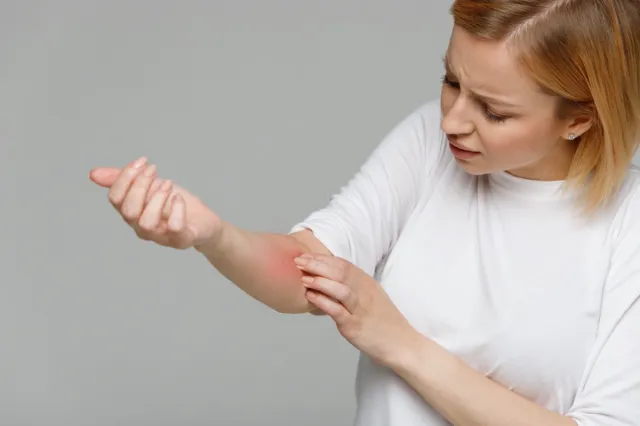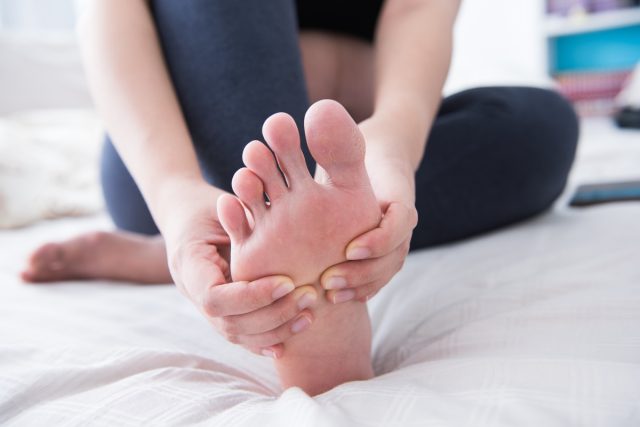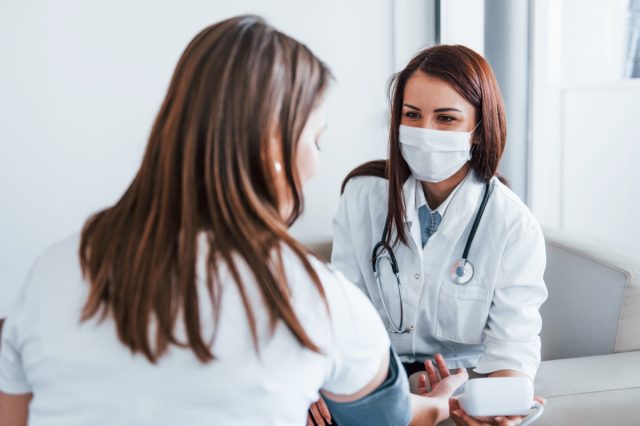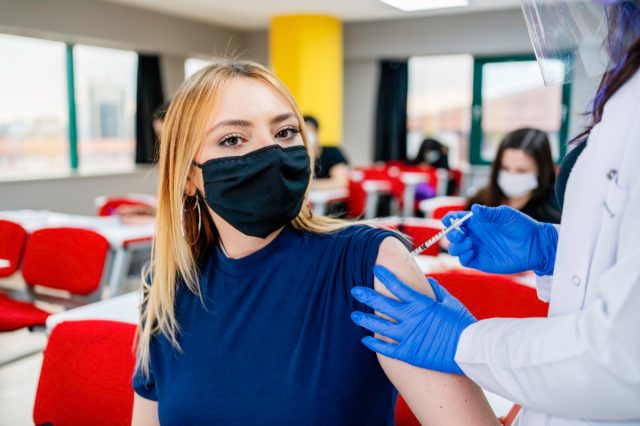Three years into the pandemic and COVID is still dominating the news cycle, but one thing that isn't mentioned often is the strange symptoms that some people experience. "While a majority of patients who present with symptoms from a COVID infection experience fever, cough, shortness of breath, or even loss of the sense of taste/smell, many patients can experience gastrointestinal symptoms and their initial indication of COVID infection. These can include loss of appetite, diarrhea, nausea/vomiting, or abdominal pain," says Dr. Parham Yashar, MD FACS FAANS, Diplomate, American Board of Neurological Surgery, President Yashar Neurosurgery and Stroke Medical Director, Dignity Health Northridge Hospital.
Skin Lesions

Dr. Yashar says, "Various skin lesions have also been noted in patients with SARS-CoV-2 infection. A rash similar to that of Measles, affecting the trunk, has been found to be the most common skin lesion or finding for patients with COVID infection in various case series."
COVID Toes

Dr. Ali Jamehdor, DO Medical Director, Emergency Department at Dignity Health St. Mary's Medical Center says, "Swelling and discoloration can occur on one or several toes. This is more commonly seen in children and very young adults. I have personally seen several cases of this. The children have been otherwise asymptomatic in all cases and most resolved in about a week. The medical explanation is favoring some type of vasculitis, which is an inflammatory response of the small vasculature seen at the extremities such as toes and fingers."
COVID Fog

According to Dr. Jamehdor, "This is real…I've seen many patients present with fairly nonspecific complaints such as general confusion, difficulty concentrating, forgetfulness and what they describe as a 'haziness.' Again, we are at the early stages of learning about all these symptoms and side effects, so most of what I share with you is based on personal experience with patients and talking to other colleagues. This 'COVID fog' can present at any time during the infection. There seems to be some correlation with the severity of your overall infection (for example…the worse the fever, body aches, cough..) and the effects and the duration of the 'COVID fog.' Most people that are asymptomatic during their COVID infection do not report this 'COVID fog.' Patients that had a harder time…are the ones that talk about, not only the 'COVID fog' itself…but also the lingering effects. I have seen patients that had the virus over a year ago….and still report that they 'don't feel like themselves.'"
Delayed Hair Loss

Dr. Nicole Bundy, Medical Director, Mymee board-certified, Yale-trained rheumatologist explains, "The delayed hair loss seen in association with COVID generally occurs a few months following the infection. It is called telogen effluvium and occurs following any illness that causes high fever. It is secondary to an abundance of hair follicles entering what is known as the 'shedding phase.' This generally resolves after about 6-9 months after which time hair returns to normal."
When to Seek Medical Treatment

Dr. Jamehdor says, "My advice is that if something hurts that doesn't make sense to you… seek medical attention. The 'COVID toe' is very benign and has no harmful effects…but it also doesn't hurt. If you have redness and pain you should get medical attention. 'COVID fog' can make you feel a bit confused for short periods of time…but if you're having a headache, neck stiffness or other neurological problems…you should seek medical attention. Most medical offices/insurances have a telehealth component and capacity. Last thing you want to do is walk around exposing everyone to this contagious virus. Set up a telehealth visit, a trained medical professional can see you, talk about your symptoms and help differentiate medical emergencies, requiring you to go to the ER, or not so urgent matters that can be done as an outpatient process."
How to Stay Safe Out There

Follow the public health fundamentals and help end this pandemic, no matter where you live—get vaccinated or boosted ASAP; if you live in an area with low vaccination rates, wear an N95 face mask, don't travel, social distance, avoid large crowds, don't go indoors with people you're not sheltering with (especially in bars), practice good hand hygiene, and to protect your life and the lives of others.
No comments:
Post a Comment